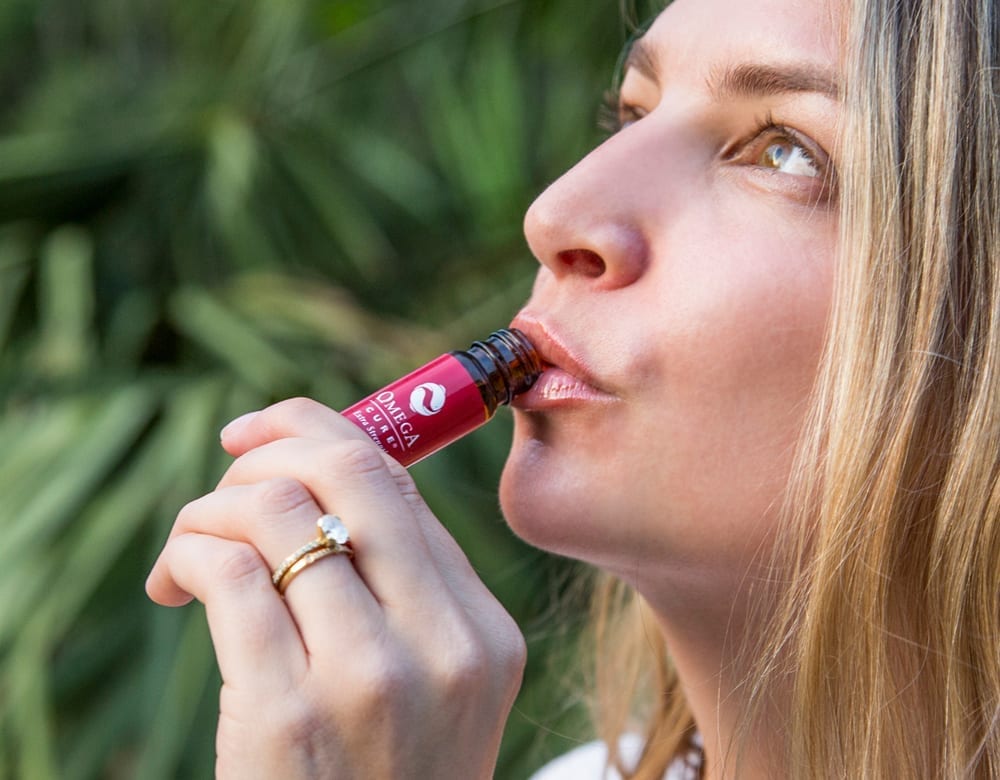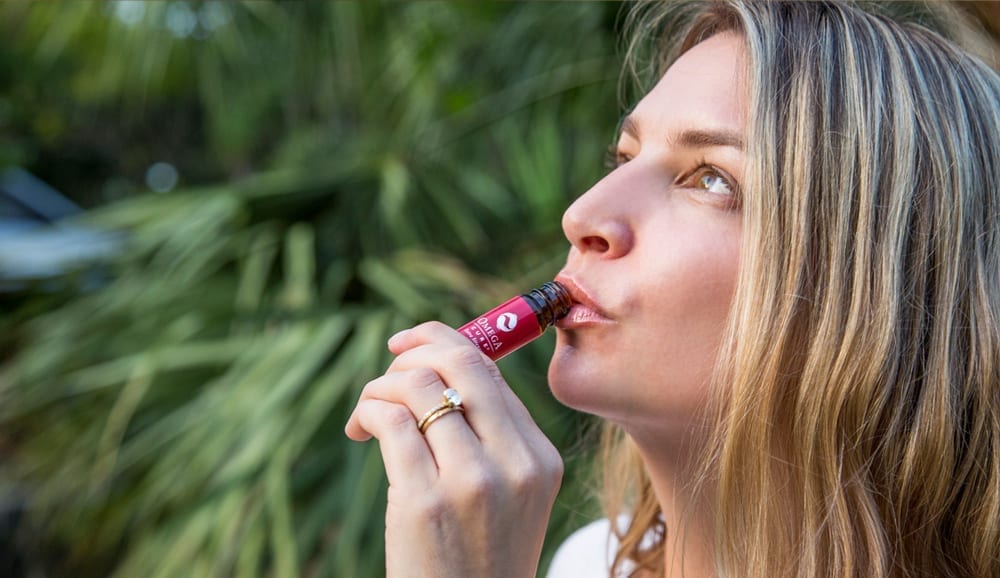Omega-3s for Anxiety: Unpacking the Benefits
Whether it’s work deadlines or perfect parenting expectations, managing anxiety in today’s society can be overwhelming. In fact, nearly 20% of Americans suffer from an anxiety disorder. Recent studies, however, have determined that natural supplements for anxiety – like omega-3 fish oil – may help manage symptoms, depending on the dose and quality.
What Are the Most Common Signs of Anxiety?
Occasionally feeling nervous or worried is perfectly common. However, when these feelings manifest in serious psychological or physical side effects, they can control our day-to-day lives. Many people report tension, nausea, tingling of the extremities, shallow breathing, and sleeping problems. More serious symptoms include heart palpitations and crippling panic attacks.
There are no clinical exams to determine anxiety disorders and – due to the variety of physiological responses – people are often put through a gauntlet of tests before anxiety can be diagnosed by a physician. Because anxiety disorders can be caused by a variety of factors, treatments also tend to work differently for everyone.
Can Anxiety Be Managed Naturally?
A new study – published in JAMA Network Open – has discovered a positive link between omega-3 and anxiety. It found that omega-3 supplements could help reduce the symptoms of anxiety in people with a clinical diagnosis.
The study also demonstrated that results depend on the quality and amount of your daily omega-3 dosage. Specifically, the researchers found that only daily doses of at least 2000 mg had a significant clinical effect.
Not All Omega-3 Dosages Are the Same
While doses greater than 2000 mg are often used in omega-3 research studies, many journalists fail to describe what these doses mean for consumers. When reporting on the same JAMA study, the New York Times erroneously reported that, “large doses…up to 2000 mg a day” had the greatest benefit for health. If you do some digging, however, it is clear: Getting an effective dose of fish oil makes all the difference.
How Many Fish Oil Capsules Do I Need to Take Per Day?
Most regular fish oil capsules contain only 300 mg of combined EPA and DHA omega-3s. To get your daily 2000 mg, you’d need to take about seven fish oil capsules every day!
When fish oil comes in capsule-form, people think of it like medication, imagining that their seven bulky capsules deliver an enormous dose. In actuality, a capsule doesn’t contain much oil, especially compared to liquid fish oil. For instance, a tablespoon of our fresh cod liver oil delivers as much omega-3 as up to 10 fish oil capsules (depending on their size and concentration).
Woman drinking Omega Cure Extra Strength. Each single-serve vial delivers 3000 mg EPA/DHA.
Why the Body Needs a Specific Amount of Omega-3
Each of our body’s approximately 30 trillion cells has a cell membrane, and every nutrient or signal coming into the cell has to pass through this membrane. Thanks to their unique double-bond structure, omega-3s and their counterparts, omega-6s, play a unique role in influencing the fluidity of the cell membrane and the cell’s response to inflammation.
For thousands of years, human evolved on a diet featuring an even ratio of omega-6s and omega-3s. Today’s Western diet, however, contains on average 15 times more omega-6s than omega-3s, thanks to processed foods. This lopsided fatty acid ratio has consequences, wreaking havoc on our cell membranes. In fact, this imbalance is believed to promote numerous health issues like cardiovascular disease, cancer, and autoimmune diseases.
Think about it this way: If you had a football game with 15 players on one side and a single player on the other, adding one or two more players to the losing side wouldn’t help much. If you want a balanced game, you have to give both teams an equal number of players. The same logic applies to our consumption of omega-3s and omega-6s.
How a High Dose of Fish Oil May Help Anxiety…and More
To rebalance the surplus of omega-6s in our diet, the amount of extra omega-3s we need each day ranges from 2000 mg and up. For certain conditions (like cancer and rheumatoid arthritis), studies routinely use significantly higher doses to achieve benefits. There’s very little research showing that small doses will make a difference for any chronic medical condition, including anxiety.
Today, most people consume 15 times more omega-6s than omega-3s through their daily diet. To understand why you need more than a few drops of omega-3s to counteract that imbalance, picture a football game. If you have 15 players for the omega-6 side and just one or two players on the omega-3 side, the omega-3 side will lose.
What’s the Optimal Omega-3 Fatty Acid Balance?
The JAMA Network study also showed that chemically-distorted, high-EPA concentrates didn’t work as well as supplements that delivered a more even EPA/DHA ratio. In fact, participants who received omega-3 supplements containing less than 60% EPA had a greater reduction in anxiety symptoms than participants who received supplements containing more than 60% EPA.
Why would concentrates with higher percentages of EPA be less effective? One reason could be explained by the fact that ‘omega-3’ is actually a family of many members; EPA and DHA are the two most abundant omega-3 fatty acids found in fish, although there are others as well.
Scientists are still working to uncover the roles of all of these omega-3 members. For instance, researchers have discovered that EPA is more of a “circulating fat” in the plasma and tissue, while DHA is more of a “building block” in the cell membrane. EPA seems to be particularly important for fighting inflammation, whereas DHA has been examined for its role in brain, sperm and eye health.
While they have different functions, these omega-3 fatty acids synergistically work together in ways we don’t fully understand yet. This could explain why – when pharmaceutical companies come with omega-3 formulations consisting of lopsided EPA/DHA ratios – we shouldn’t be astonished that their long-term use might be sub-optimal.
Quality of Fish Oil Plays a Massive Role in Effectiveness
If you’ve been dissatisfied by with the results of your fish oil capsules, the answer may lie in not only the amount you’ve taken, but also the quality of your dosage. The biggest complaints about fish oil supplements revolve around smell and taste. If you’ve ever caught a strong whiff of fish or experienced unpleasant fishy burping, it’s highly likely that your supplement has oxidized, increasing health risks instead of benefits.
Omega3 Innovations: The Easiest, Most Effective Omega-3 Dose
At Omega3 Innovations, we have dedicated years of research to developing methods of delivering the purest and most effective omega-3 doses to our customers. Therefore, the omega-3 oil we use has a 1:1 ratio of EPA/DHA.
Our pre-measured Omega Cure Extra Strength and Omega Restore vials both deliver 3000 mg of EPA/DHA and 1400 IUs of vitamin D3. What’s more, these deliciously drinkable omega-3 oils have zero fishy smell or taste. If you regularly feel excessive worry or stress, try one of our fresh, full-spectrum fish oil products today.
An Effective Omega-3 Dose, Made Simple
Experience the Omega3 Innovations difference for yourself with the most effective fish oil supplement on the market.
Buy Now
Popular posts



Related posts







